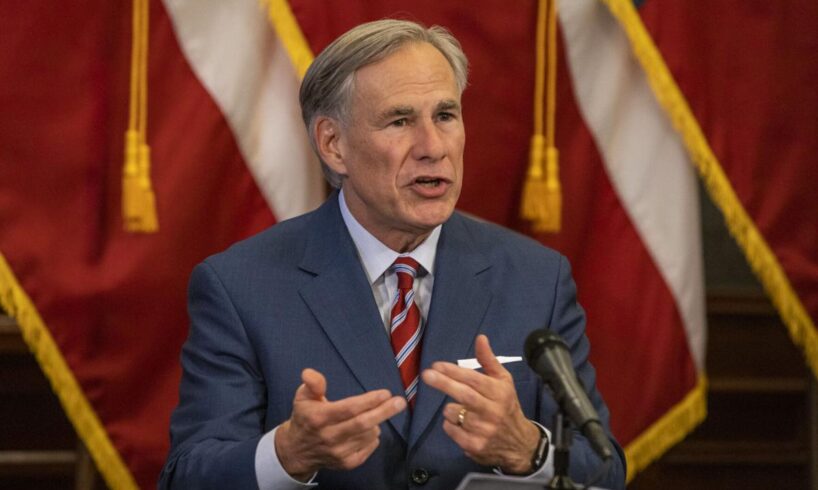
After eight months of delays, House Democrats fleeing to Washington, D.C. in protest, a regular session and two special sessions, Gov. Greg Abbott signed his key legislative priority into law Tuesday, reforming election laws in the state of Texas.
The bill signing ceremony was held in Tyler, Texas, in the district of the bill’s author, Republican state Sen. Bryan Hughes. Joining him were state Rep. Andrew Murr and Lt. Gov. Dan Patrick, who helped ensure the bill would pass in the House and Senate.
“Election integrity is now law in the state of Texas,” Abbott said at the bill signing ceremony. “One thing that all Texans can agree on is that we must have trust and confidence in our elections. The bill helps to achieve that goal.”
Democrats describe the reform measures as “voter suppression.” In July, more than 50 House Democrats left Austin, interrupting House business for 37 days.
Hughes said, “I am honored to carry this legislation that makes it easy to vote and hard to cheat.”
Senate Bill 1 creates uniform statewide voting hours, maintains and expands voting access for registered voters that need assistance, and prohibits drive-through voting, which was illegally implemented by Texas Democrats in Harris County during the 2020 election, plaintiffs who sued argued.
The new law enhances transparency by authorizing poll watchers to observe more aspects of the election process, penalizes election officials who block poll watchers, and requires poll watchers to complete online training developed by the secretary of state’s office.
It also bans the distribution of unsolicited applications for mail-in ballots by public officials, as was done by the Harris County Clerk in 2020, and requires voters to fill out qualifying information on voter registration applications.
It prohibits paid ballot harvesting, gives voters with a defective mail-in ballot the opportunity to correct the defect using a new online ballot-tracking system, and establishes procedures for verifying returned mail ballots. It also requires a voter ID number on all mail ballots, bringing it in line with the requirement for in-person voting.
The new law requires the state to create procedures to verify a voter’s citizenship status by cross-referencing driver’s license information with DPS data. Currently, noncitizens can obtain a driver’s license and they can automatically be registered to vote through DPS but there is no way to differentiate between citizens and noncitizens at the polls who use their driver’s license as a form of ID when they vote. The law hopes to change that, Abbott said.
The new law also holds voter registrars accountable for performing required voter list maintenance and requires voter assistants to complete a form and take an oath that they will follow the law.
It also requires that video surveillance of central procession areas be implemented to ensure ballots are secure and adds security protocols for electronic devices inside central counting stations, as well as requires certain time-sensitive election-related court proceedings to be prioritized.
SB1 failed to pass during the regular session and never made it to a hearing in the House during the second special session. After three Houston Democrats returned to the House, enabling the chamber to meet quorum, during the second special legislative session, the House passed the bill along party lines.
The Texas Senate passed SB 1 on Aug. 12 for the third time this year. The House’s version was different, resulting in multiple amendments being added, overseen by Murr. Members in the House and Senate then hashed out the differences in conference committee and the full chamber voted Sept. 1 on the final version of the bill.
The bill passed by a vote of 80-41 in the House, with Rep. Lyle Larson of San Antonio the sole Republican voting against it. The Senate passed the bill on a party-line vote of 18-13.
The bill takes effect 90 days after the end of the second special session on Sept. 5.
This article was originally posted on Gov. Abbott signs election reform bill into law